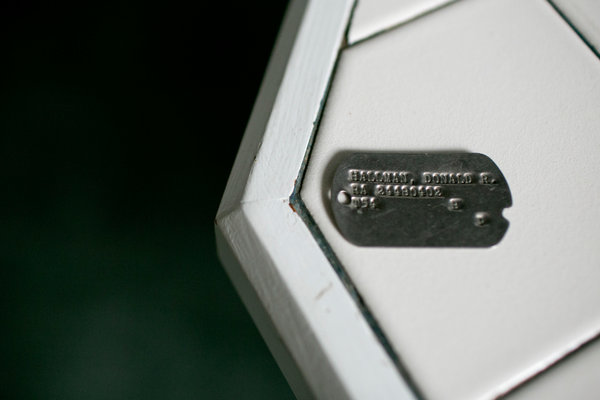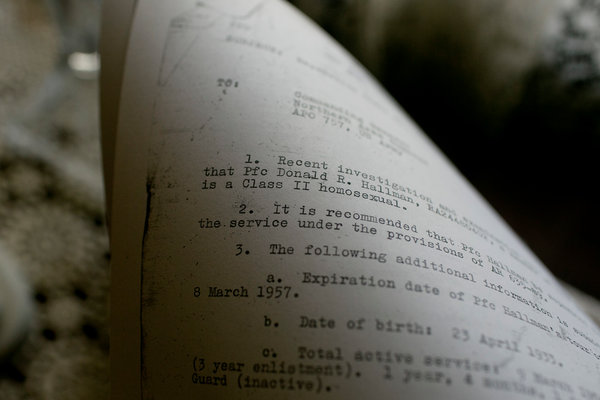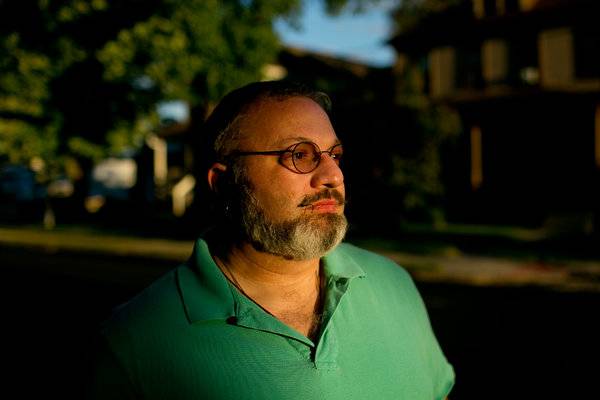David_42
Registered Democrat.
- Aug 9, 2015
- 3,616
- 833
- 245
It's disgusting what was done to these veterans.
http://www.nytimes.com/2015/09/07/u...norable-discharges-they-were-denied.html?_r=1
http://www.nytimes.com/2015/09/07/u...norable-discharges-they-were-denied.html?_r=1
COLUMBUS, Ohio — When the Army discharged Pvt. Donald Hallman in 1955 for being what it called a “Class II homosexual,” the 21-year-old was so scared of being an outcast that he burned all his military records, save for a single dog tag he hid away.
Mr. Hallman, a coal miner’s son who sang in a church choir in rural Alabama, says he never mentioned his military service again. He married a woman he had met at work, had children and wore a suit and tie to work each day.
“I hid it because it would have ruined my life,” Mr. Hallman said in an interview at his home here.
But this summer, Mr. Hallman, now 82, retrieved the dog tag from a keepsake box and began working through an application to the Department of Defense, asking that his decades-old discharge be upgraded from “undesirable” to “honorable.”
“I’ve gotten to a point in my life where no one can hurt me now,” he said. “I don’t care who knows, and I want to show I was an honorable person.”
He is one of a steady march of older veterans who were kicked out of the military decades ago for being gay, and who are now asking that their less-than-honorable discharges be upgraded.
Photo

Mr. Hallman put the circumstances of his discharge out of his mind for decades, and though he kept his dog tag, it was hidden away. CreditAndrew Spear for The New York Times
By some estimates, as many as 100,000 service members were discharged for being gay between World War II and the 2011 repeal of the military’s “don’t ask, don’t tell” policy. Many were given less-than-honorable discharges that became official scarlet letters — barring them from veterans’ benefits, costing them government jobs and other employment, and leaving many grappling with shame for decades.
Now, emboldened by the gay soldiers serving openly in the military and the same-sex couples finding broad acceptance in civilian life, they are increasingly seeking amends.
“After all these years, I want to tie up loose ends,” said Jim Estep, 80, a retired professor in Buffalo, who was given a less-than-honorable discharge in 1964. “It’s a way of getting the government — that faceless entity — in some way to acknowledge the authenticity of my life and my contribution to the country.”
A 2011 Obama administration policy generally grants an honorable discharge to any veteran who was kicked out for homosexuality unless there were “aggravating” factors, such as misconduct. Records from the Department of Defense show 80 percent of the nearly 500 requests submitted since 2011 received an upgrade.
But for many it is far from an easy fix. Tracking down decades-old records and getting an upgrade can take years. Many veterans hire lawyers, and some veterans groups have asked for the process to be streamlined.
“It’s really frustrating,” said Becca von Behren, a staff attorney for the San Francisco organization Swords to Plowshares, which provides legal assistance to veterans. “If a veteran needs health care from the V.A. and it takes so long to get an upgrade, the veteran can really spiral down.”
A bill in Congress, known as the Restore Honor to Service Members Act, would grant blanket upgrades to nearly all veteran discharged for being gay, but it has been stalled in Congress since 2013, and backers say it has little chance of moving forward this year.
In the 1970s and 1980s, upgrading service records was the battleground of gay activists. Today the requests are coming from everyday citizens.
“These stories are buried deep; it can be traumatic to dredge it up again,” said Lori Gum, an organizer at Stonewall Columbus, a gay community center in Ohio. She has helped six veterans start the upgrade process in the past year, including Mr. Hallman, but said three were too troubled by the past to finish the application.
Last edited:



